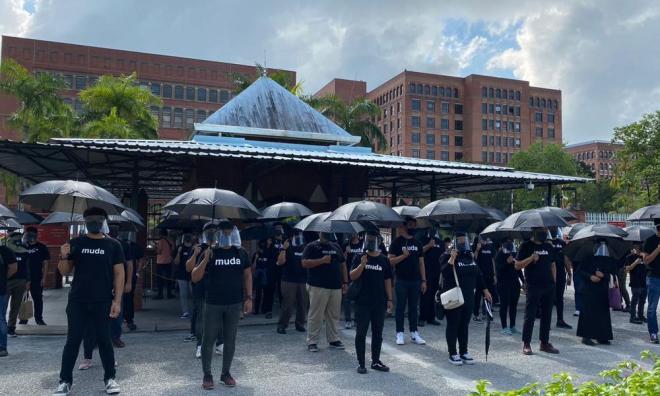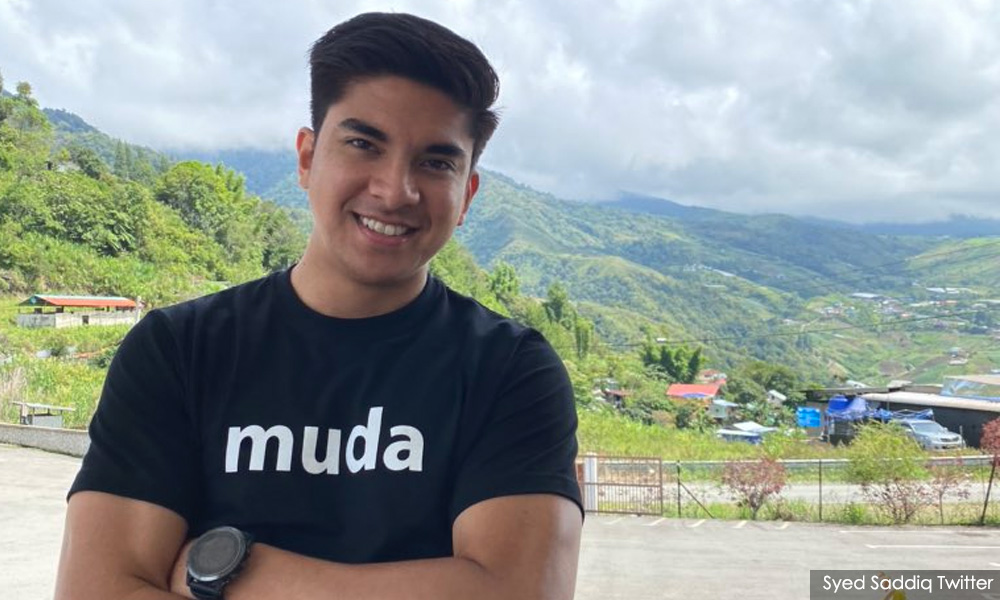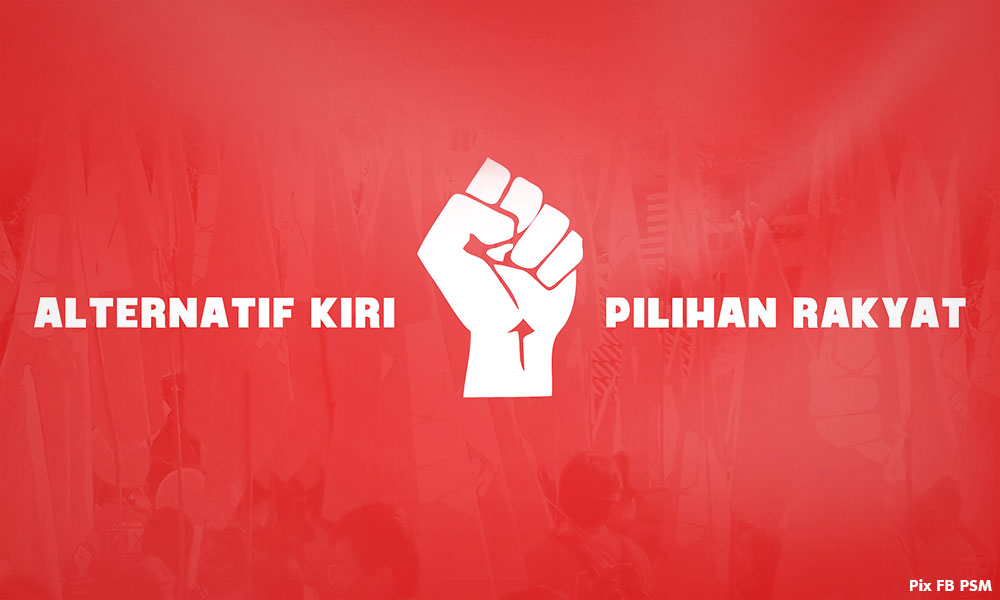
Chin Huat chat #4: The times they should be a-changin' - but they aren't
Last month, Malaysians were treated to the sight of one-time foes Dr Mahathir Mohamad, 95, and Tengku Razaleigh Hamzah, 83, holding a press conference at Parliament and calling for a change ahead of a vote on Budget 2021.
If it was a familiar yet incongruous sight, let’s bear in mind that the pair served together in the cabinet as far back as the first Tun Hussein Onn administration in 1976.
Along with Lim Kit Siang, Anwar Ibrahim, Abdul Hadi Awang, Rais Yatim, Najib Abdul Razak and current prime minister Muhyiddin Yassin, they represent a prominent old guard of political heavyweights who has been public figures for at least 35 years. Indeed, Lim and Mahathir were first elected to Parliament in the 1960s.
At the same time, the youthful former minister Syed Saddiq Syed Abdul Rahman has broken free of the hegemony and registered his multiracial youth movement Malaysia United Democratic Alliance (Muda) as a political party with predictable obstacles, such as trying to get recognition by the Registrar of Societies, thrown in its way.
If it was a familiar yet incongruous sight, let’s bear in mind that the pair served together in the cabinet as far back as the first Tun Hussein Onn administration in 1976.
Along with Lim Kit Siang, Anwar Ibrahim, Abdul Hadi Awang, Rais Yatim, Najib Abdul Razak and current prime minister Muhyiddin Yassin, they represent a prominent old guard of political heavyweights who has been public figures for at least 35 years. Indeed, Lim and Mahathir were first elected to Parliament in the 1960s.
At the same time, the youthful former minister Syed Saddiq Syed Abdul Rahman has broken free of the hegemony and registered his multiracial youth movement Malaysia United Democratic Alliance (Muda) as a political party with predictable obstacles, such as trying to get recognition by the Registrar of Societies, thrown in its way.

“Many Malaysians lament that we don't have leadership renewal, but few probably realise the institutional cause of such stagnation. The problem? Party leaders control their MPs and state assembly representatives instead of the other way around.
“So, to change, a party leader needs a civil war in the party unless the old leader willingly passes on his or her baton. To change leaders more often is to give more elected representatives more autonomy from their party leaders.
"The most important change is to allow bottom-up candidate selection. Next would be to guarantee some room for dissent by MPs or state representatives,” said political scientist Wong Chin Huat in the last of a series of chats with Malaysiakini.
Interestingly, Wong opines that the anti-hopping law which normally disqualifies expelled lawmakers is the last thing we need.
He believes that term limits for prime ministers, chief ministers and the recognition of a shadow cabinet will create room for future leaders to emerge.
“If we don't talk about these reforms, perhaps in the year-end of 2050, another editor will have to ask another political scientist the same question,” Wong wryly added.
“So, to change, a party leader needs a civil war in the party unless the old leader willingly passes on his or her baton. To change leaders more often is to give more elected representatives more autonomy from their party leaders.
"The most important change is to allow bottom-up candidate selection. Next would be to guarantee some room for dissent by MPs or state representatives,” said political scientist Wong Chin Huat in the last of a series of chats with Malaysiakini.
Interestingly, Wong opines that the anti-hopping law which normally disqualifies expelled lawmakers is the last thing we need.
He believes that term limits for prime ministers, chief ministers and the recognition of a shadow cabinet will create room for future leaders to emerge.
“If we don't talk about these reforms, perhaps in the year-end of 2050, another editor will have to ask another political scientist the same question,” Wong wryly added.
The frustration of younger segments of society with the dominance of an entrenched old guard that has led the country into a political stalemate is evinced by the formation of Muda.
“The youth clearly want a bigger voice in national politics and rightly so. But there is little room for a third force based on an age-cohort simply because voters cannot freely vote for the party they want under the First-Past-The-Post (FPTP) system.
“If Muda runs in whatever constituencies it likes, it will clash with Perikatan Nasional (PN)-BN and Pakatan Harapan. In this situation, Muda candidates are likely to lose their deposits," he said.
Wong called on Muda to engage the Harapan leadership.
“Its best chance is to negotiate with Harapan to replace Bersatu in those urban seats allocated to the latter in 2018. But Muda is then faced with another challenge: how to hang around with Harapan and still keep its appeal as almost an outsider party for frustrated youth?”
Muda is far from the only party whose impact is limited due to the current political system. A small party like Parti Sosialis Malaysia (PSM) does grassroots works, but its numbers at the polls have been underwhelming.
“The youth clearly want a bigger voice in national politics and rightly so. But there is little room for a third force based on an age-cohort simply because voters cannot freely vote for the party they want under the First-Past-The-Post (FPTP) system.
“If Muda runs in whatever constituencies it likes, it will clash with Perikatan Nasional (PN)-BN and Pakatan Harapan. In this situation, Muda candidates are likely to lose their deposits," he said.
Wong called on Muda to engage the Harapan leadership.
“Its best chance is to negotiate with Harapan to replace Bersatu in those urban seats allocated to the latter in 2018. But Muda is then faced with another challenge: how to hang around with Harapan and still keep its appeal as almost an outsider party for frustrated youth?”
Muda is far from the only party whose impact is limited due to the current political system. A small party like Parti Sosialis Malaysia (PSM) does grassroots works, but its numbers at the polls have been underwhelming.

Parti Sosialis Malaysia
“The biggest obstacle to PSM, like in the case of Muda and other groups wanting to be a third force, is an unfriendly electoral system. Supporters for such a party are not conveniently concentrated in a few constituencies to elect their representatives to Parliament and state legislatures.
“Worse, the fear of wasting their votes for choosing unwinnable candidates may lead good politicians like (former Sungai Siput MP) Dr Jeyakumar Devaraj to be sacrificed in strategic voting,” Wong said.
Another roadblock would be the difficulties faced by elected representatives in making actual change for their constituencies if they are not given a position in federal or state government.
“The second obstacle is the inefficacy of lawmakers to change policy or implementation (of a policy) if they are not ministers or state excos. This makes many voters judge MPs by their constituency work and their connection with government agencies.
"This makes PSM less attractive to some voters than parties that are more likely to be in government.
“For PSM to gain representation in legislatures, a little more pragmatism may help but three institutional reforms are what it needs the most," he added.
First, a mixed-member electoral system, with some party-list seats to allow voters to vote for their party of choice directly, will be needed.
Second, legislative reforms to give non-executive lawmakers real roles in shaping policies and laws.
Third, local elections, which would allow voters to choose better control government agencies at the local level and experiment with parties like PSM.
“Worse, the fear of wasting their votes for choosing unwinnable candidates may lead good politicians like (former Sungai Siput MP) Dr Jeyakumar Devaraj to be sacrificed in strategic voting,” Wong said.
Another roadblock would be the difficulties faced by elected representatives in making actual change for their constituencies if they are not given a position in federal or state government.
“The second obstacle is the inefficacy of lawmakers to change policy or implementation (of a policy) if they are not ministers or state excos. This makes many voters judge MPs by their constituency work and their connection with government agencies.
"This makes PSM less attractive to some voters than parties that are more likely to be in government.
“For PSM to gain representation in legislatures, a little more pragmatism may help but three institutional reforms are what it needs the most," he added.
First, a mixed-member electoral system, with some party-list seats to allow voters to vote for their party of choice directly, will be needed.
Second, legislative reforms to give non-executive lawmakers real roles in shaping policies and laws.
Third, local elections, which would allow voters to choose better control government agencies at the local level and experiment with parties like PSM.
chin huat chat 123 is okay, the fourth is toking kok.
ReplyDeleteSyed Saddiq, buat apa susah susah sangat, just join DAP, you will be a shoo-in for a CEC position at the very least (party elections by June), and a Ministerial position when DAP is back in gomen. Ayam sure the Lims will give you the latitude and space to shine. Then the 3Rs (Ronnie, Ramkarpal and Rammasamy) will be happy, Teng & Zaid too...ha ha ha....
ReplyDelete